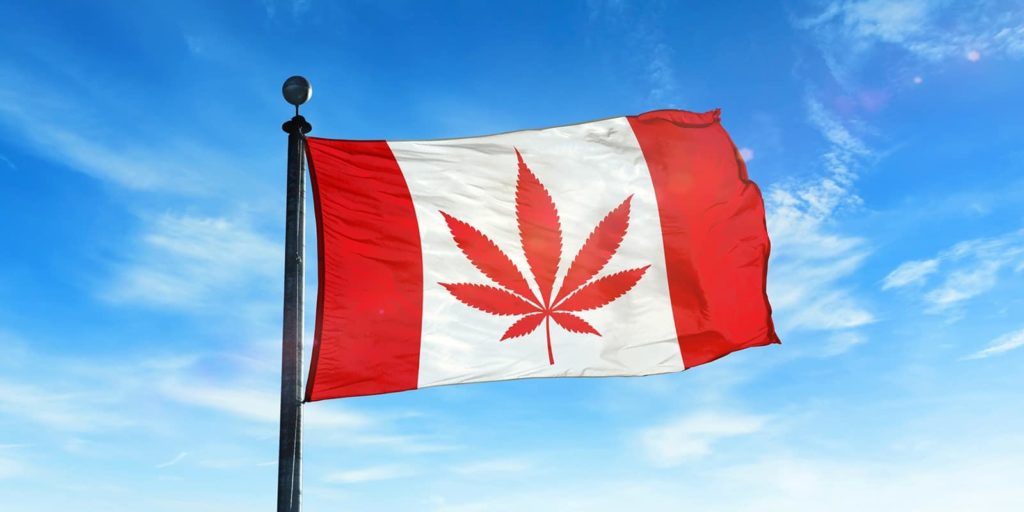On Wednesday, October 17, 2018, Canada became the first major industrialized country to legalize cannabis for both medicinal and recreational, adult use. Cannabis prohibition in Canada is over and without a doubt, it marks a major cultural, political, and economic shift by our ally to the north. It is such a historic moment that I humbly suggest Canadians go a bit further and consider a change to the Canadian anthem, O Canada:
…O Canada! Where pines and maples grow,
Great prairies spread and lordly rivers flow,
Where a miraculous plant named cannabis is legal now….
Legal Cannabis for Adults
Most interestingly, according to the Canadian government, “the Cannabis Act aims to accomplish 3 goals set by their current Prime Minister, Justin Trudeau:
- Keep cannabis out of the hands of youth;
- Keep profits out of the pockets of criminals;
- Protect public health and safety by allowing adults access to legal cannabis.”
This is not exactly an altruistic agenda, but nonetheless, cannabis use and possession is legal at the national level and may serve as a guide for federal legalization here in the U.S. While certain regulatory and enforcement issues (such as impaired driving) are left to the Provinces, the federal law permits adults ages 18 and over to:
- Possess up to 30 grams of legal cannabis in public;
- Share up to 30 grams of legal cannabis with other adults;
- Buy dried or fresh cannabis and cannabis oil from a provincially-licensed retailer;
In provinces and territories without a regulated retail framework, individuals are able to purchase cannabis online from federally-licensed producers;
- Grow, from licensed seed or seedlings, up to 4 cannabis plants per residence for personal use;
- Make cannabis products, such as food and drinks, at home as long as organic solvents are not used to create concentrated products.
Cannabis edible products and concentrates will be legal for sale approximately one year after the Cannabis Act came into effect on October 17, 2018.
According to various news organizations like the BBC, people were literally dancing and partying in the streets on Wednesday. Unfortunately, it is not welcome news to everyone. The Canadian Medical Association Journal published a statement that it is “a national, uncontrolled experiment in which the profits of cannabis producers and tax revenues are squarely pitched against the health of Canadians.” This is distressingly similar to the position by its U.S. counterpart, the American Medical Association: “Our AMA believes that cannabis is a dangerous drug and as such is a public health concern.” What may both groups have in common? Relationships to the established and powerful pharmaceutical industry? Perhaps.
Seeing Green: The New Cannabis Marketplace
An astounding amount of money will be made as a result of the Cannabis Act. In addition to mergers, acquisitions, sales, and trading on the Canadian stock exchange, the Canadian office of the accounting firm Deloitte estimates up to $7.17 Billion (U.S. dollars) in Canadian cannabis sales in 2019, with $4.34 Billion coming from the adult-use market. If anti-cannabis U.S. politicians refuse to accept the medical benefits that cannabis provides, perhaps the potential profits for American companies and resulting jobs will persuade them to support federal legalization. Considering that California alone has more residents than Canada (39 million vs 37 million), U.S. profits will be astronomical.
Traveling with Cannabis to Canada
Be warned, you cannot enter or leave Canada while possessing cannabis, even if you are coming or going to a U.S. state where cannabis is legal in some form. This may change over time similar to the Cuban cigar embargo which has been partially lifted by the U.S. when purchasing limited Cuban cigars in Canada and bringing them back to the U.S. There have also been reports that U.S. officials have threatened lifetime bans for Canadian cannabis industry professionals, investors, and even consumers trying to enter the U.S. Keep in mind that Canada is not only our steadfast ally, it is also our largest trading partner. This is how we treat friends? Over a plant?
A Healthier Future?
We applaud and wholeheartedly support the end of cannabis prohibition in Canada as it sets an example worldwide. For the millions of adults who already understand the many health and wellness benefits of using medical marijuana, it will be fascinating to see how Canadian citizens overall health improves over time. Hopefully, the Canadian Medical Association will issue a retraction once cannabis-related health data is collected and analyzed. Until then, the people of Canada, led by Prime Minister Trudeau have abolished the regressive, destructive, cannabis prohibition and embarked on a new wellness journey. With the popularity of U.S. national legalization growing every year, we may soon follow in Canada’s footsteps, even if we need snowshoes to do so. I’ll gladly take a pair, size 11 please. Visit Canada’s Cannabis Laws and Regulations to learn more.
What do you think about national legalization in Canada and possibly here in the U.S.? Let us know, we’d love to hear from you!
Philip Rebentisch is a writer and Content Editor for Three Wells




